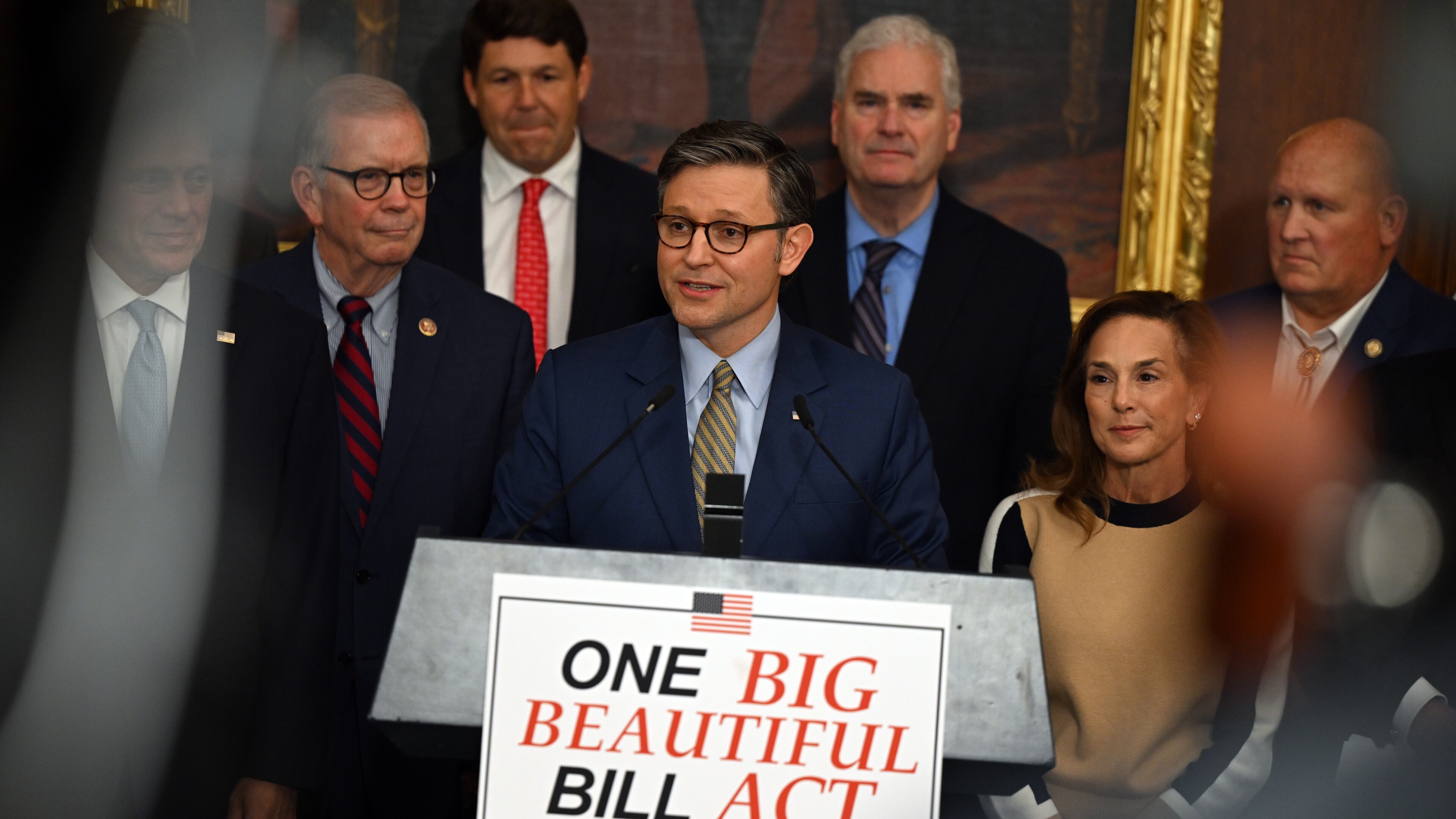Republicans’ ‘big beautiful bill’ is a budget-busting boondoggle

Days before the House passed President Donald Trump’s “big beautiful bill,” Moody’s Ratings agency had an ominous warning about the U.S. economy. Because of America’s recent history of running up huge debts and deficits, and no change in sight, “the United States’ fiscal performance is likely to deteriorate” relative to similar countries. As a part of that warning, Moody’s downgraded the country’s credit rating from its AAA score to AA1.
Despite that red flag, House leaders forged ahead, passing their 10-year tax-and-spend plan, the One Big Beautiful Bill Act, by a single vote. Unfortunately, the bill not only ignores Moody’s debt warning, it looks more like one big, beautiful boondoggle.
Included in the gargantuan bill are $4.5 trillion in tax cuts, more than $800 billion in cuts to Medicaid, food stamps, and other social programs, and significant boosts in spending for defense and immigration enforcement.
Costs of some social programs, including food stamps, are also shifted to states by the House. My colleague Tia Mitchell reported this week that Georgia officials could now be on the hook for more than $800 million in food spending if the GOP bill goes through. Other states that expanded Medicaid under Obamacare will absorb more of those costs, too.
All of the cuts to social safety net programs came, in part, to help pay for the tax cuts in the bill, which are heavily weighted toward high-income earners. For example, the working-class tax breaks that Trump promised on the campaign trail, namely eliminating taxes on tips, overtime pay, and car loan interest, will only last through the end of Trump’s term in 2028. But the income tax cuts, including for the richest Americans, as well as tax breaks for estates and investment income all become permanent.
The House also stuffed loads of perks for special interests into the 1,100-page bill. One measure bans states from passing new regulations on artificial intelligence for 10 years. So if Georgia lawmakers decide they want to limit the use of AI in Georgia classrooms, like they did with cellphones this year, the Big Beautiful Bill Act would stop that until 2036. It would also mean Georgia lawmakers could not pass SB 9, a bill to ban deepfakes in political ads, which passed the state House and Senate earlier this year, but did not get to final passage.
A different measure, this one for gun dealers, was put into the bill by Georgia’s U.S. Rep. Andrew Clyde. The Republican from Athens owns two large gun stores, which both sell gun silencers. Clyde flipped from a “no” to a “yes” after the $200 tax on silencers was eliminated, at a cost of $1.4 billion.
“My Democrat colleagues have asked, ‘How did it get in the bill, what was in the deal and who asked for it?’” Clyde said during the House debate. “No deal. I believe (Speaker Mike Johnson) with the purest of motives wanted to restore a constitutional right. Who asked? Me, I asked.”
Of all of the special interests in the bill, the most special of all seems to be Trump himself. The bill mentions Trump’s name 52 times. It also creates new $1,000 savings accounts for babies born during Trump’s second term called “Trump Accounts.” It even has language to make it harder for federal courts to enforce injunctions against executive branch officials, a lot like the injunctions Trump has run into as he tries to expand his own powers in the White House.
Every spending bill is a political document, of course, and a Republican Congress cutting taxes and rolling back Biden-era climate measures is no surprise. But what is a surprise is the bill’s price tag, $3.94 trillion, which will all get piled onto the nation’s $36 trillion debt that Moody’s just warned about. For every tax cut and spending measure that may be a good idea on its merits, it’s all getting paid for with more borrowed money.
It’s a long way from the Tea Party movement, which exploded onto the scene in 2009 after Congress passed big bailouts for banks following the 2008 financial crisis. The national debt then was $13 trillion, one third of what it is today. Republicans then promised they would finally tackle the debt and the deficit. This bill does the opposite.
Even Elon Musk, the mastermind of the Department of Government Efficiency, said so on his last day as a government employee this week, adding that the bill “undermines the work that the DOGE team is doing.”
“It can be big or beautiful, but I don’t know if it can be both,” he said.
If I was a House Republican at the beginning of this year, I had one job — to reduce the debt and deficit. With Trump in the White House, Republicans in control of Congress, and Musk promising to modernize and remake the federal government, the House bill was supposed to be the vehicle for all of that to happen. Instead, they just passed one big, beautiful boondoggle.



